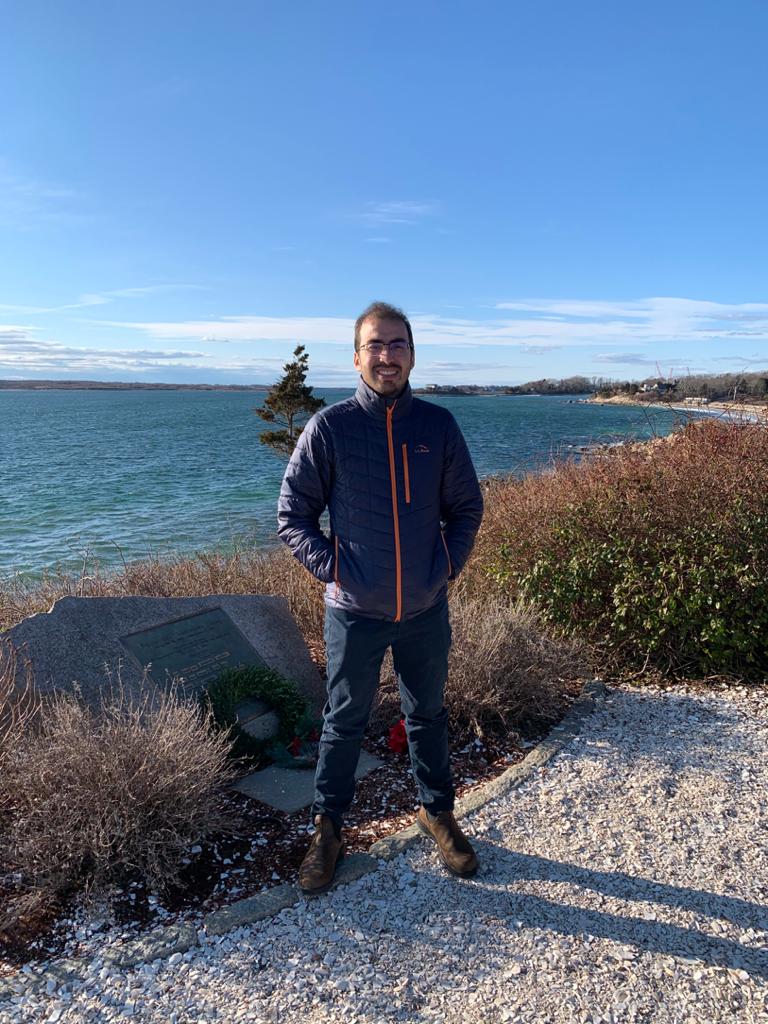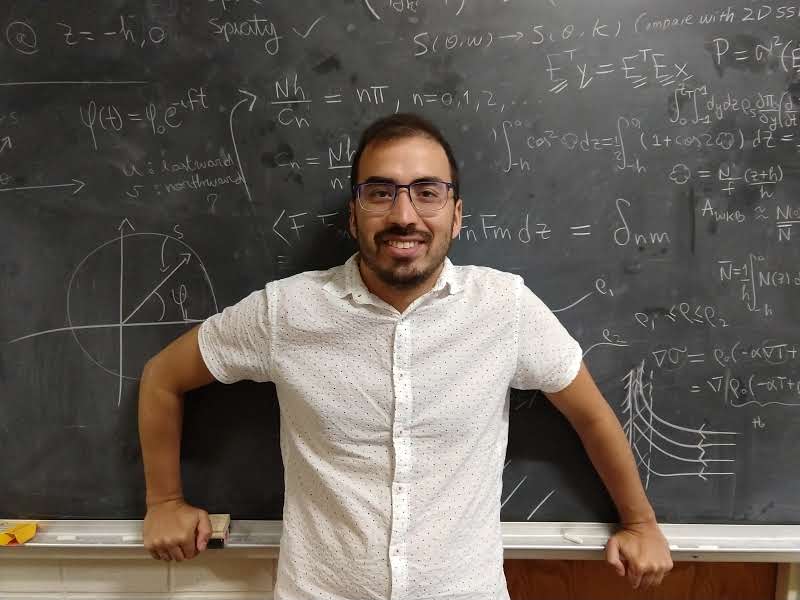 Later this year, Dr. César Rocha will be starting as a new assistant professor in the Department of Marine Sciences (DMS). DMS has been searching for new physical oceanographers to join the ranks of the faculty. It is with great enthusiasm that we welcome César to the University of Connecticut and to the scenic Avery Point campus.
Later this year, Dr. César Rocha will be starting as a new assistant professor in the Department of Marine Sciences (DMS). DMS has been searching for new physical oceanographers to join the ranks of the faculty. It is with great enthusiasm that we welcome César to the University of Connecticut and to the scenic Avery Point campus.
Professor Rocha is currently a postdoctoral fellow at the Woods Hole Oceanographic Institution. In 2018, he received his Ph.D. in Physical Oceanography from the Scripps Institution of Oceanography at University of California, San Diego. Before then, he studied at University of São Paulo in Brazil, where he completed his B.S. in Oceanography and M.Sc. in Physical Oceanography.
Rocha, who hails from Brazil, reflected that his childhood played a large role in his decision to study the ocean. “Even though I grew up in a landlocked city, I used to spend every summer in my family’s house on Brazil’s Green Coast.” He continued, “in those lengthy vacations, I developed an awe for the ocean and this led me to pursue oceanography in college.”
He started oceanographic research as an undergraduate and “never stopped.” Along the way, he is glad to have had “wonderful mentors” to help shape his academic and professional career. Currently, Rocha’s research interests lie in mesoscale and sub-mesoscale flows in the ocean. This scale ranges from 1 to 100 kilometers and includes features such as eddies, fronts, and filament flows of the mixed layer and pycnocline, the layer of the ocean characterized by large density differences. Flows may originate at large scales and cascade to smaller ones, which mix the ocean and cause turbulence. Rocha explains, “Turbulent oceanic flows are responsible for both horizontal and vertical transport of properties such as heat, freshwater, nutrients, and biogeochemical tracers.”
While in graduate school, Rocha was a NASA Earth and Planetary Sciences Graduate Fellow. At UConn, he will continue his relationship with NASA through two NASA-related projects. The first will investigate sub-mesoscale eddies that are generated near topographic features on the ocean floor, which is a part of the Surface Water and Ocean Topography (SWOT) Mission. The second will be with the Submesoscale Ocean Dynamics Experiment (S-MODE), in which he and collaborators will deploy a flotilla of Saildrones, wind and solar-powered uncrewed surface vehicles, to study vertical transport in kilometer-sized fronts of the California Current.
Beyond research, Rocha is enthusiastic about teaching and mentoring. “I enjoy breaking down and distilling complicated concepts and explaining them to others,” he said. “I am committed to continuing to develop myself as an effective instructor.” He plans to create a new hands-on course called Research Computing in Marine Sciences, in order to teach data science and analytical tools in Python.
Rocha is looking forward to the personal and interdisciplinary community at DMS. “I like the idea of being in a department that is big enough to have a robust graduate and research programs, yet small enough so we get to know everybody,” he said. “I am eager to interact with colleagues from all areas of marine sciences.”
In his spare time, Rocha is working on his culinary skills. He also voraciously reads in both English and his native Portuguese. One of his favorite American publications is The New Yorker, for its fascinating and well-produced content.